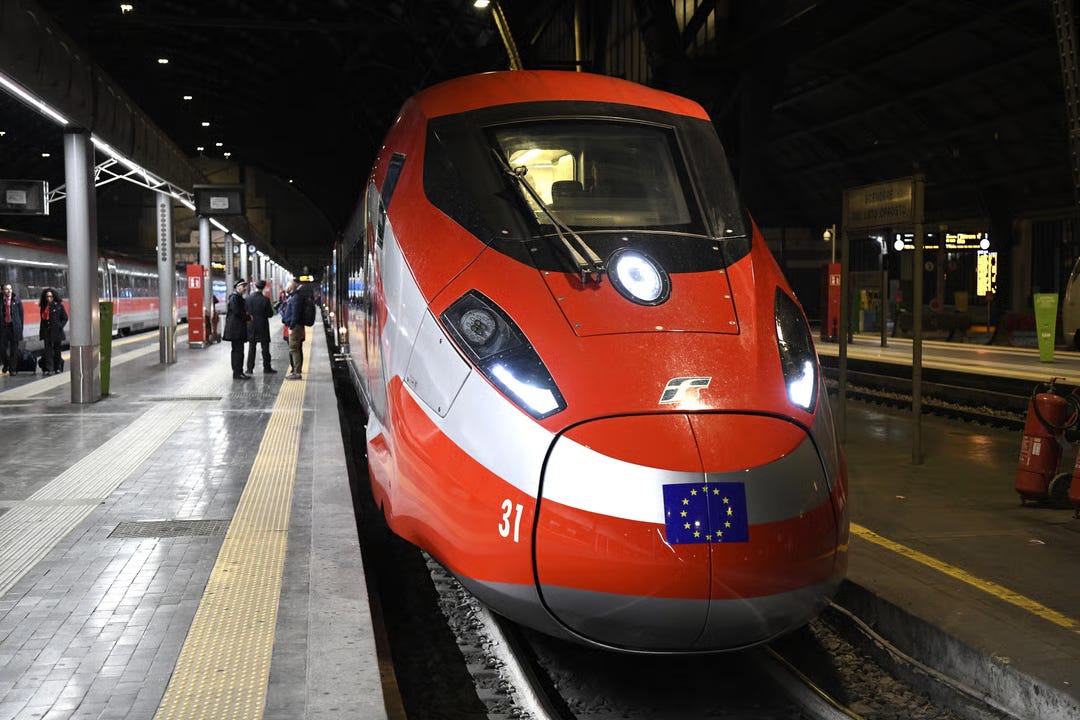Trenitalia considers operating trains in Germany

Italian trains on Deutsche Bahn’s home turf? That could be the outcome of deliberations at Italy’s FS Group, which is exploring the possibility of operating high-speed trains not only on international connections to and from Germany, but also on the German domestic market. It’s an unusual step that would make the Italian operator the first foreign-owned competitor in Germany.
In an interview with the German business newspaper Handelsblatt, FS CEO Luigi Ferraris confirms that the group is considering deploying 50 new high-speed train sets on routes within Germany’s borders. There is contact with the German authorities on the matter, and the signal alone marks a tightening of FS’s pan-European strategy.
From cross-border to domestic operations
FS Group and its operator Trenitalia have been running Frecciarossa services between Paris, Lyon and Milan in open competition with French SNCF since 2021. In Spain, the group operates high-speed trains through joint venture operator Iryo, competing with Renfe on the Madrid–Barcelona route. Now FS is turning its attention to Europe’s largest railway market.
Operating domestic trains in Germany requires a German operating license from the Eisenbahn-Bundesamt, capacity allocation from DB InfraGO, and likely coordination agreements with DB and ÖBB. The regulatory and capacity barriers will undoubtedly be significant, so it will be a lengthy and complicated process before Italian wheels begin rolling on German tracks.
Milan–Munich: Briefly delayed, but in full swing
Luigi Ferraris’s statements come alongside news that FS is moving the launch of its Milan–Munich connection from December 2026 to sometime in the first quarter of 2027. The connection will be the group’s first direct high-speed route to Germany and will run via the current Brenner connection through Austria.
FS plans to operate the connection with ETR1000 and ETR410 trainsets that are being adapted for German and Austrian operations. The group has previously announced that it aims for up to 10 daily departures when the network is fully rolled out, with later expansion to Berlin as well as Rome and Naples to Munich and Berlin.
The full impact of the strategy depends on the opening of the Brenner Base Tunnel in 2032 and ongoing capacity upgrades on the Verona–Fortezza route.

